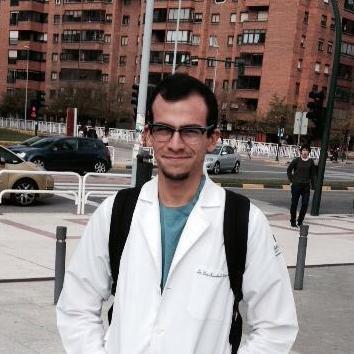Pursuing a PhD in neuroscience
A delay in the international approval of a medical degree meant that one Mexican student's education journey took a slight detour
Share
By the time I finished med-school in Mexico, I felt like I was supposed to follow the path that every potential doctor has to take: prepare for residence entry exams (similar to the United States Medical Licensing Examination). But I was keen to continue my studies abroad, and having spent a few months in Spain as an intern in a couple of hospitals, I chose to go and give it a try there.
I knew that my medical degree and other important documents were going to take a few months to be approved by the Spanish embassy in order for them to be valid, so I had some time to fill. I had always been interested in research and that was when I found out about the neuroscience programme at the University of Navarra.
They offered an interesting master's degree, and I already had good references from the university and had spent two months in the university's hospital so I knew I would be able to gain a place on the programme. I managed to get a student loan and a partial scholarship from a Spanish bank, so I just packed up my luggage and left.
The University of Navarra is located in a small city in northern Spain called Pamplona, well known around the world for the annual running of the bulls. This was such a change of pace for me, coming from Mexico City and being used to crowds, heavy traffic and noise. I suddenly found myself in this lovely small city, full of green areas and clean air, where you could walk to any point of the city in less than 30 minutes.
Interested in studying for a master's or PhD?
During my master's, I was offered the opportunity to join the functional neuroimaging department in the Associated Medical Research Center, to work on my thesis. This was perfect for me, since it was closely related with radiology, which I wish to go and study later on. I learned a lot about cognitive neuroscience and research methodology and started to feel more attracted to pursuing a career as a scientist instead of a doctor.
Time went by and my medical degree still hadn't been approved, so I had to make a decision: finish my master's degree and go back to Mexico or apply for a PhD at the University of Navarra. I chose the latter. I applied and was chosen by the university's "Friends Association" that sponsors students during the whole duration of their doctoral program.
I'm now in the third year of my PhD, where I'm trying to understand how young and adult brains work in certain situations while driving in a virtual simulator. I have had some work published and have also collaborated with other laboratories.
During this time I have also discovered how much I love to teach, as I have held some classes and workshops for psychology undergraduates.
I am looking forward to a research stay in Germany next semester in order to learn new techniques and form new links between our research centres and to continue my research journey.
Luis Humberto Eudave Ramos is a PhD student in neuroscience at the University of Navarra.
